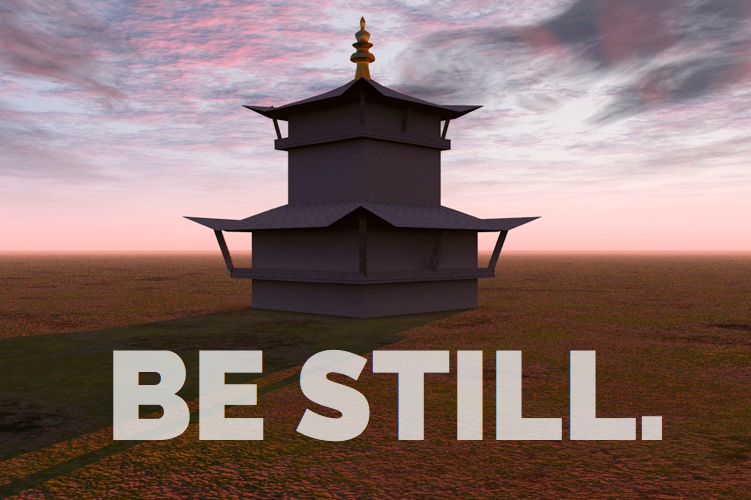
If you want to learn how to succeed in meditation, there’s a wide variety of techniques you can put into practice, meditation music you can listen to, and brainwave entrainment tools that can make accessing a state of deeper relaxation that much easier. But in the end, you may find that the meditative state is closer than you realize.
What Do Indian Sages, the Bible, and the Beatles Have in Common?
The great 20th-century Indian sage Sri Ramana Maharshi, beloved by spiritual seekers in the East and the West, often quoted a line from the Holy Bible: “Be still, and know that I am God.” This advice–“Be still”–has been offered by mystics throughout history, and was the basis of Ramana’s own teachings, as well. Day after day, year after year, he directed spiritual seekers to simply be still in order to awaken to what he called the “natural state” of freedom, joy, and peace within.
Decades later, after studying under the renowned Transcendental Meditation founder Maharishi Mahesh Yogi in India, the Beatles returned with advice very much along the same lines: “Whisper words of wisdom,” they sang, “let it be.”
Be still, and let it be. What could be simpler?
The Trick to Being Perfectly Still
No matter what techniques you use to get there, allowing everything to be as it is while remaining perfectly still, within and without, is the essence of true meditation. But the great mystics must have also realized that for the average person, being still is probably the hardest thing there is to do. As the French mathematician, inventor, and philosopher Blaise Pascal once observed, “I have discovered the source of all human conflict: Man’s inability to sit still in a room.”
But one of the most direct routes to practicing meditation is to simply force yourself to be still, for increasingly longer periods of time. Be still for one minute, perhaps for two. Then try being still, relaxed and at ease, for five minutes.
Sit in whatever position makes you comfortable, even if it’s your office chair at work. If you attempt to do this at least once a day, you will get better at it—guaranteed—and you will come to learn that stillness of the body is only part of the picture. The bigger part is stillness within—stillness of the mind.
But learning to be physically still is the first step to getting there.
Let Everything Be As It Is
Once you have mastered the art of remaining as physically still as possible, even for five or ten minutes at a time, you’re ready to take it all the way. You can now put Paul McCartney’s advice into practice and let it be. Let everything be—all thoughts, all feelings, all sensations, all worries, all hopes, all fears, all sounds and perceptions. Let it all come and go, come and go, effortlessly, as you remain unmoved in the face of the busy world. Let it be, and let it go—if only for five or ten minutes.
Unless your house is currently on fire, nothing you are worried about is worth dwelling on for the five or ten minutes that you have chosen to devote to your meditation practice. So don’t dwell on anything–just be still, calm, at ease, and ignore your busy mind. If you can let your mind be as it is, mechanically spinning out thoughts like the complex machine that it is, then you will remain untouched by it. You will remain still, inwardly and outwardly. And you will discover, from your own direct experience, the nature of true meditation.
The secret is simple, and putting it into practice is effortless, once you get the hang of it. In a certain sense, it’s almost too good to be true. You don’t have to do anything, or go anywhere, to practice meditation. You just have to give up doing anything and everything, and simply…
Be still.
by Thomas Dixon


